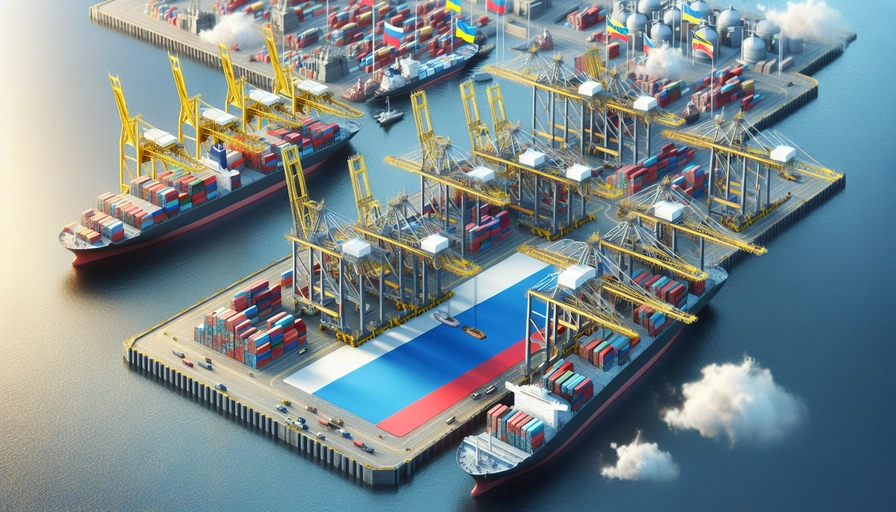The ongoing conflict between Russia and Ukraine has significantly impacted trade relations between the two countries. As the situation evolves, several key developments have emerged that are crucial for understanding the current state of Russia-Ukraine trade.
- US Holds Off on Russia Tariffs Amid Ukraine Conflict Negotiations: The United States has refrained from imposing new tariffs on Russia due to ongoing negotiations regarding the Ukraine conflict. This decision is part of broader efforts to resolve the conflict and stabilize trade relations. US imports from Russia have drastically decreased from USD 14.4 billion in 2022 to USD 3 billion in 2024, reflecting the impact of sanctions. The Eurasian Economic Union (EAEU) has not planned retaliatory import restrictions on US goods, and Russia continues to monitor the situation to mitigate trade restriction risks.
-
Black Sea Ceasefire: A Partial Truce Agreed Upon by Russia and Ukraine: A ceasefire agreement in the Black Sea has been reached between Russia and Ukraine, potentially reviving the 2022 grain initiative. This agreement aims to facilitate agricultural exports and access to international markets for both countries. While the truce is seen as a breakthrough, concerns remain about its implementation and the possibility of Russia seeking further concessions.
-
Hungary’s 2025 Oil Deal: 4.5-5 Million Tonnes Expected from Russia: Hungary anticipates receiving 4.5-5 million tonnes of oil from Russia in 2025, continuing the supply via the Druzhba pipeline. This ongoing trade relationship highlights the interconnectedness of energy markets and the importance of stable supply chains amidst geopolitical tensions.
-
China to Boost Russian Natural Gas Imports in 2025: China plans to increase its natural gas purchases from Russia, either through the Power of Siberia 2 pipeline or by boosting LNG imports. This move underscores the strengthening economic ties between Russia and China, particularly in the energy sector, as both countries navigate the challenges posed by Western sanctions.
-
Poland Mulls Odesa Port Acquisition to Boost Trade: A Polish deputy minister proposed that Poland buy or lease a port in Odesa, Ukraine, to secure access to the Black Sea for grain exports. This initiative aims to reduce transport costs and enhance trade efficiency, reflecting the strategic importance of the Black Sea region in global trade.
-
Russia Seeks Black Sea Initiative Clarification from Saudi Arabia: During talks in Riyadh, Russia requested clarity on a new Black Sea initiative to ensure the removal of discriminatory measures against Russian fertilizer and agricultural exports. This request highlights the need for transparent and fair trade agreements to support economic stability.
-
Russia-China Economic Ties Strengthen Amidst Western Sanctions: Western sanctions on Russia and China have led to increased collaboration between the two countries. Efforts to find new methods for financial transactions and strengthen trade relations are crucial for revitalizing their economies and mitigating the impact of sanctions.
In summary, the trade relations between Russia and Ukraine are deeply influenced by the ongoing conflict and geopolitical dynamics. Key developments such as the Black Sea ceasefire, Hungary’s oil deal, China’s increased natural gas imports, and Poland’s proposal for the Odesa port reflect the complex and evolving nature of trade in the region. As negotiations continue and new agreements are reached, the stability and future of Russia-Ukraine trade remain uncertain but crucial for both countries’ economic well-being.

